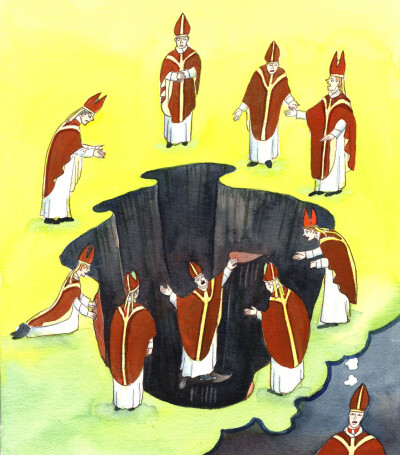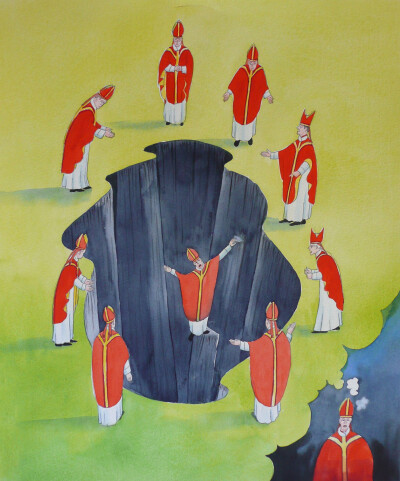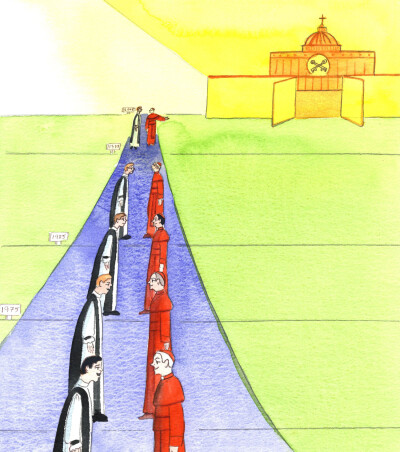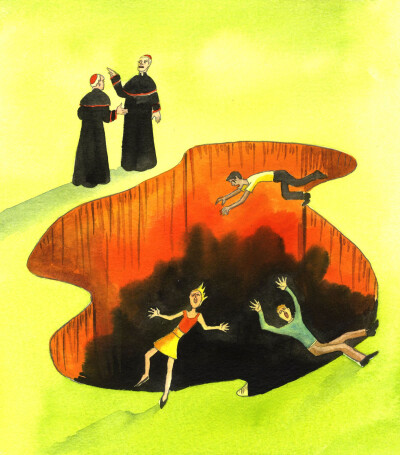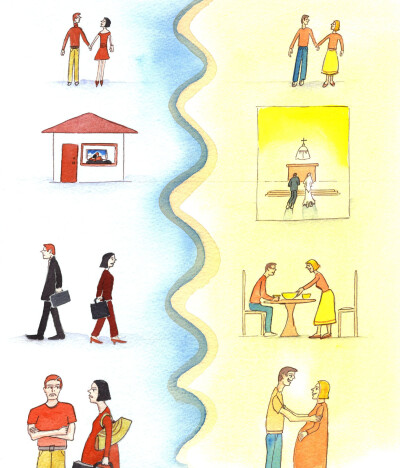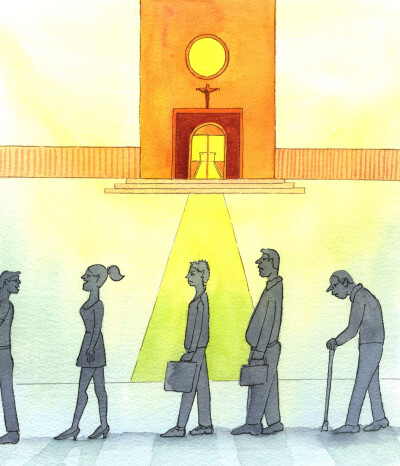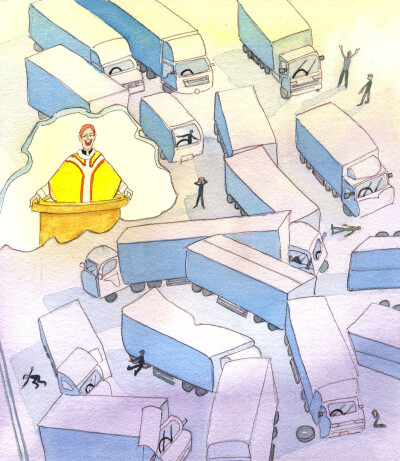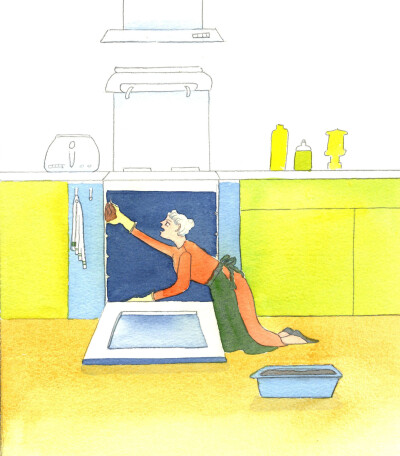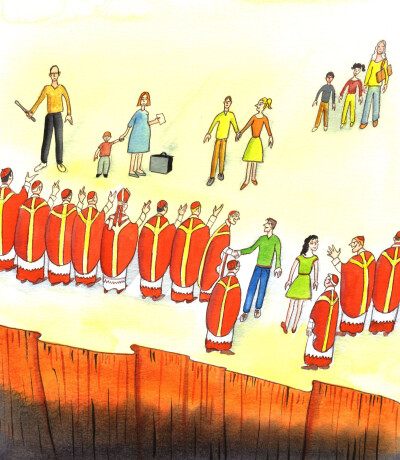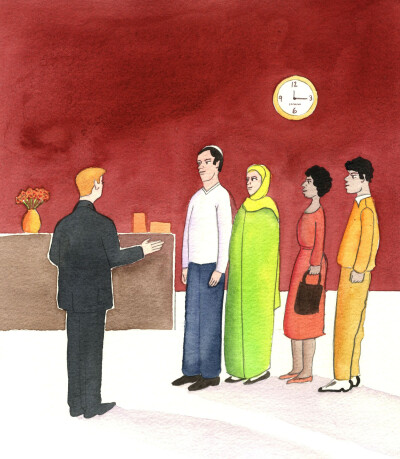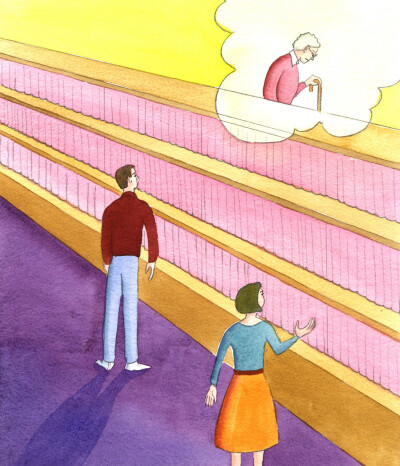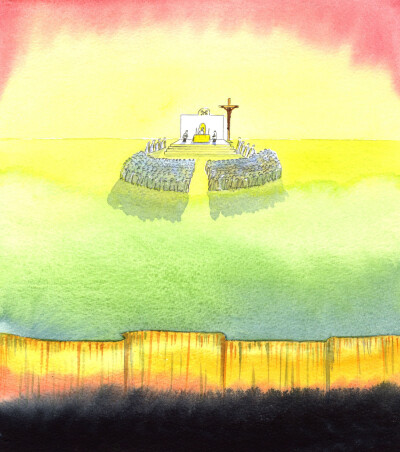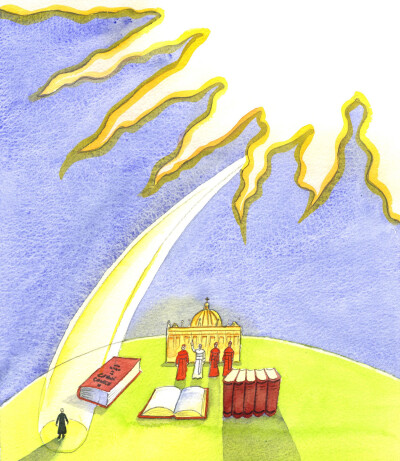Search Page
Showing 61 - 80 of 91
The Ministerial Priesthood is such an extraordinarily-privileged state that a man is foolish if he accepts that privilege, then neglects his duties. It is a cause for sadness, also, when a man believes that he cannot fulfil that vocation and asks to be laicized. Although he can be saved, if he continues to live as a faithful Catholic, he will not enjoy the sort of glorious entry into Heaven that a faithful priest enjoys, unless he has reached the height of holiness and humility before he dies.
We can picture a Bishop in Purgatory, thinking of how he would re-appear to his fellow-Bishops, if he could, to say how much he now regrets his past silence on the subject of invalid Orders, and on sexual immorality - including contraceptive use. In failing to teach his flock, and failing to speak the truth to others, he has only avoided Hell because he was badly taught, when he was being catechised, and then trained to be a priest. All that the Church teaches is true.
We can picture a Bishop in Purgatory, thinking of how he would re-appear to his fellow-Bishops, if he could, to say how much he now regrets his past silence on the subject of invalid Orders, and on sexual immorality - including contraceptive use. In failing to teach his flock, and failing to speak the truth to others, he has only avoided Hell because he was badly taught, when he was being catechised, and then trained to be a priest. All that the Church teaches is true.
A priest or Bishop who speaks only of generalities, year after year, when he meets with Protestant Ministers, is failing in his duty. To practice ecumenism does not mean never mentioning the glorious truth that Christ founded one united Church, upon Peter: a Church which exists today, with its door open, for everyone willing to come in and practice the Faith, guided by her sure teachings.
It is sad to see some Bishops squabbling about comparatively unimportant matters, while, close by, people are falling into the pit - into Hell - because of their own freely-chosen actions. Those sinful people who died unrepentant are responsible for their fate; but they were not helped by Bishops who might have taught them the Faith in its fullness, with fervour, and so steered them away from danger.
The Lord does not give great tasks to those unwilling to fulfil ordinary tasks. If people are not willing to look after their own relations - especially old parents, and young children - they are not going to be able to speak up with confidence, to other people, about the Christian life being a way of self-giving and charity.
One sin leads so easily to another; for example, when a woman idolises the man she loves, co-habits with him, pursues a career to be a glittering partner to him, rather that have a family, and then finds she is pregnant, she slides more easily into the grave sin of abortion than a woman who has already been prayerful and disciplined for God's sake, in a loving marriage begun in Church: a woman not ashamed to carry our ordinary domestic tasks, and who sees every baby as a gift from God to her and to her husband.
We have a duty to pray for our brothers and sisters who have lapsed, and no longer enter church for Mass. Some have committed grave sins and don't want to give them up; others feel ashamed of their sins but have forgotten that they can repent and be forgiven. Others no longer believe in the teachings of the Church. They all deserve our prayers.
Real charity, in practice, includes speaking the truth. A member of the Clergy who panders to the desires of the laity not to hear about sin, and who fails to do his duty of issuing warnings, as Christ did, will be held responsible for when people do sin, just as people are held responsible for road-crashes when they have failed to put out signs about road-works, or major junctions.
The Lord is pleased when we recognise and fulfil our ordinary duties, both towards the earthly life in which we participate, and towards God, by making time for daily prayer. He is also pleased when people who are advanced in prayer do not think themselves therefore brought 'low' by ordinary work and service.
We, in the Church, have a duty to share the truth about God's love for us all, shown out in Jesus; but if we are afraid, we cannot expect people to take an interest in what we say. We must choose whether to remain 'hidden', as if behind a huge hedge, urging others in a general way: "I know the truth", or "Jesus is God-made-man" - or we can step out to meet people face to face and speak joyfully about having learned about the Way to Heaven.
Bishops are called to do more than show out niceness. The Bishops of the Church should act, in their faithfulness and preaching, like a 'wall' of truth and care, to prevent any of their flock from falling into the Abyss. When Bishops neglect to preach about sin, but are mainly concerned to be nice to everyone, they will have to account to God for the souls of those whom they let through the gap in the 'wall', without a word of warning.
It is wrong, in God's sight, for us to deny God, in an attempt to be tolerant. A Government of a Christian country has a duty to tell people who wish to become citizens that the Christian Faith is the foundation of our country's institutions at large, that the greater proportion of the citizens claim to be Christian, and they they are expected to respect what is Christian, though no-one forces newcomers to become Christian.
Grandparents and parents should receive regular care. Though people might rely on a whim, or a mood, when they choose a book from a bookshelf, that is wholly the wrong attitude to have when choosing what to do each day. It is one of our basic duties to care for our families, and to help others if we can. We should not wait until we feel in a good mood.
Every Pope deserves our prayers. Each Pope who faithfully fulfils his duties works to save people from the pit: to bring them to know and love Christ, or to renew their knowledge and love. He follows Christ in the office of Saint Peter, and often does so despite the physical and emotional cost. He has a world-wide flock, which is the Catholic Church.
We should think about God's nature, when we think about catechesis. Wherever a person whose duty it is to teach the Faith distorts it, or truncates it, to make it more palatable, that person does wrong. God Himself is Truth, so if we offer people a distorted truth, or a truth which leaves out essential elements or difficult-to-comprehend aspects, we insult God, even if we don't realise it.
What is Mary Like? by Elizabeth Wang
This text is the complete version of the pamphlet WHAT IS MARY LIKE?
“Now having met together; they asked him, ‘Lord, has the time come? Are you going to restore the kingdom to Israel?’ He replied,…
The Purpose of the Priesthood, by Elizabeth Wang
‘The Purpose of the Priesthood contains encouragement and advice for Catholic priests. It reminds them about the central meaning of the Priesthood, and about the need to teach the Catholic Faith in it…
How to Pray: Basics, by Elizabeth Wang
This text is published as Chapter 2 of How to Pray (Part One: Foundations), pages 9-18, entitled 'How to Pray'. An introduction to the life of prayer with much practical advice about how to deepen you…
How to Pray: Perseverance, by Elizabeth Wang
This text is published as Chapter 3 of How to Pray (Part One: Foundations), pages 19-30, entitled 'How to Persevere'. An introduction to the life of prayer with much practical advice about how to deep…
Showing 61 - 80 of 91


